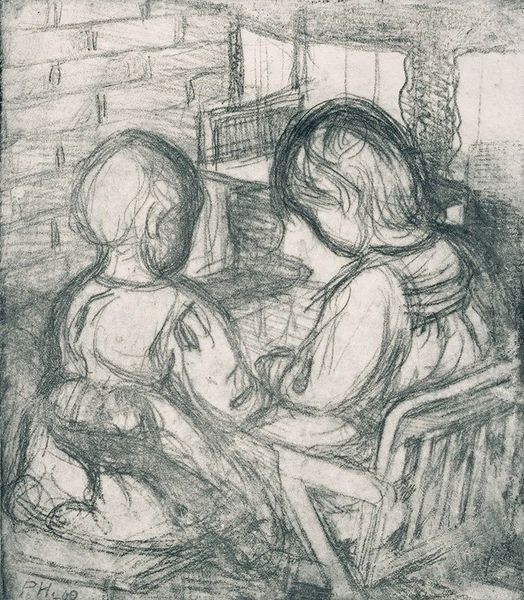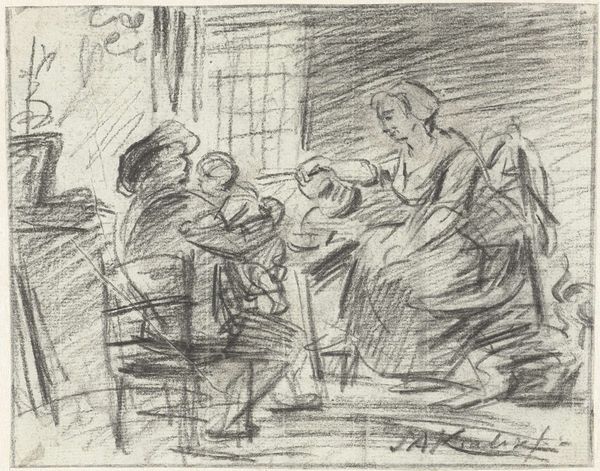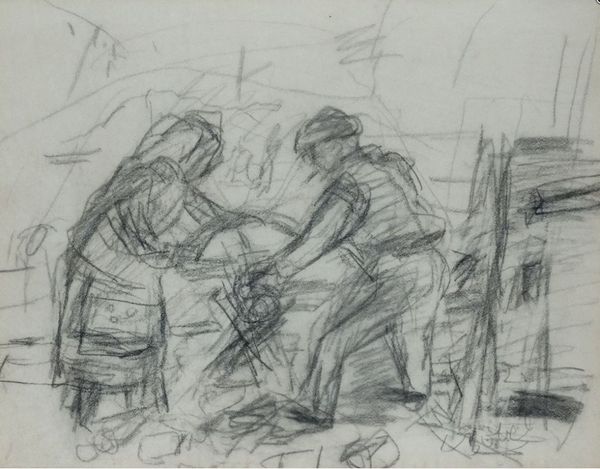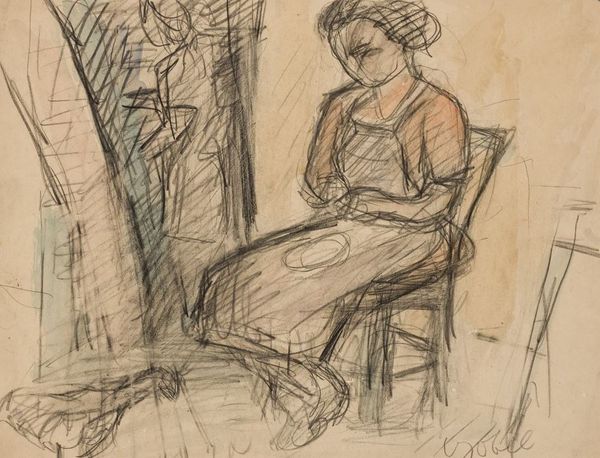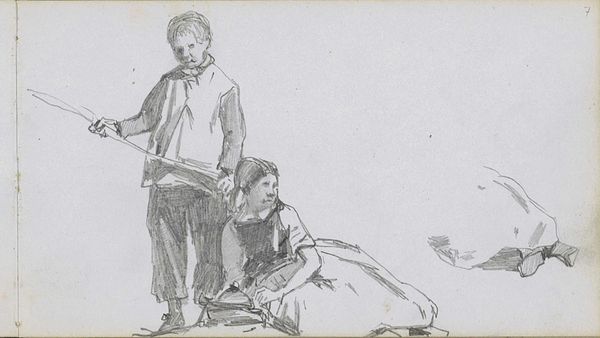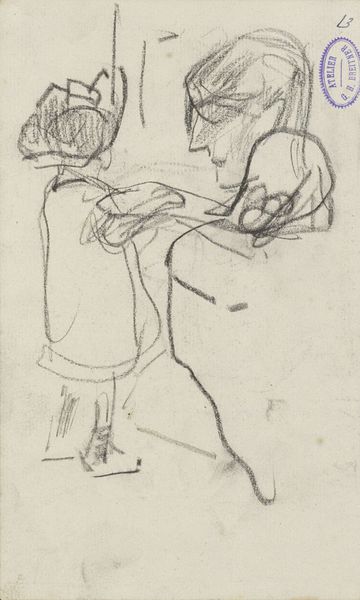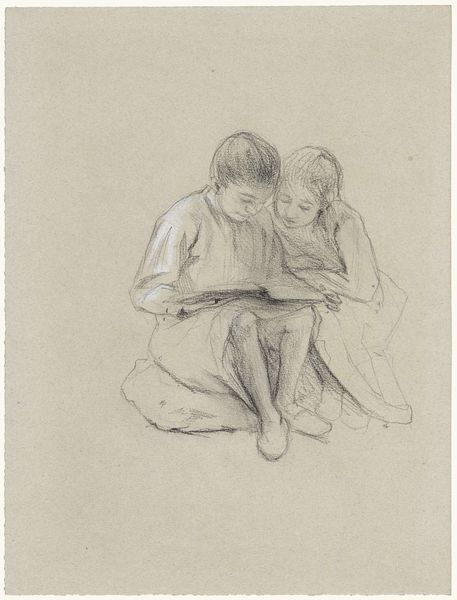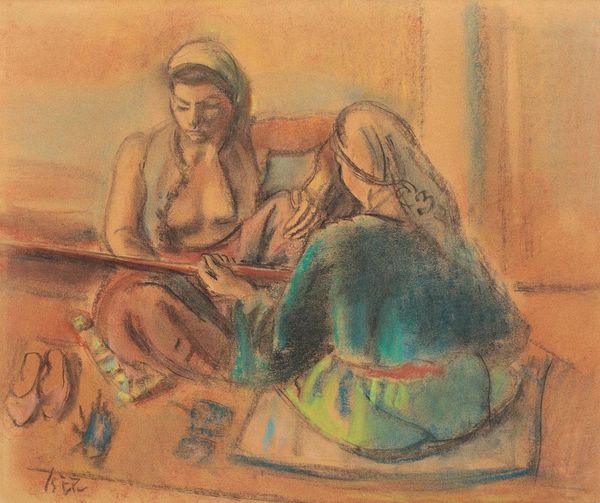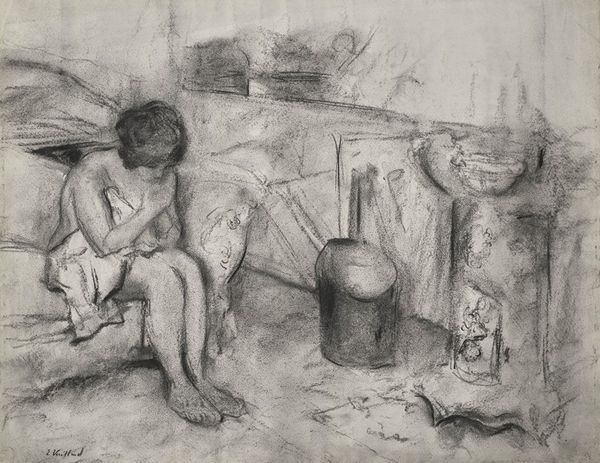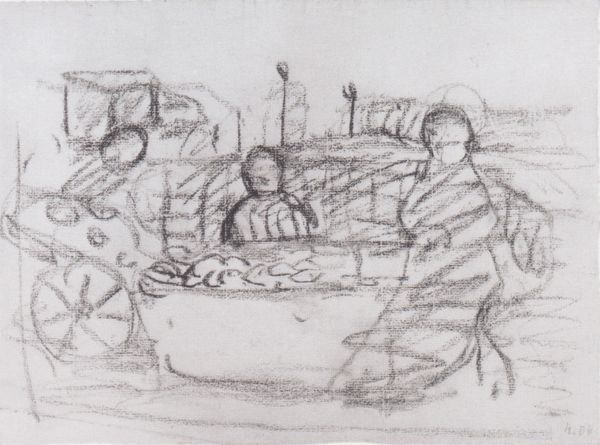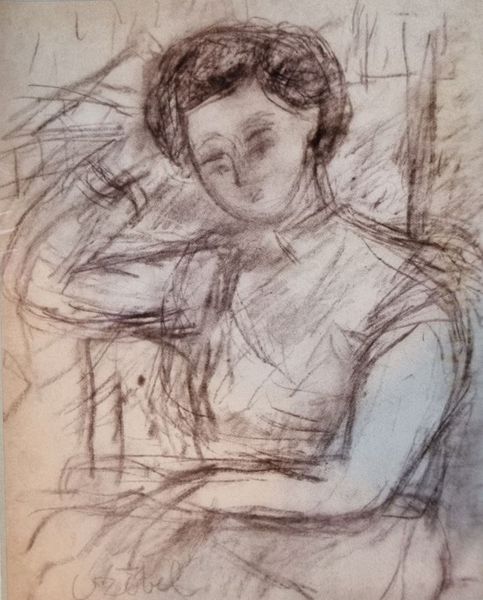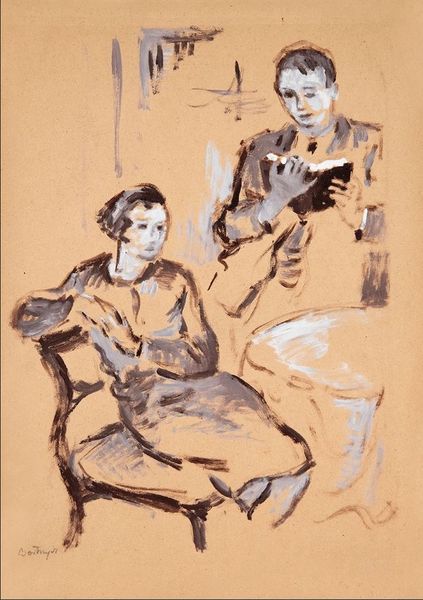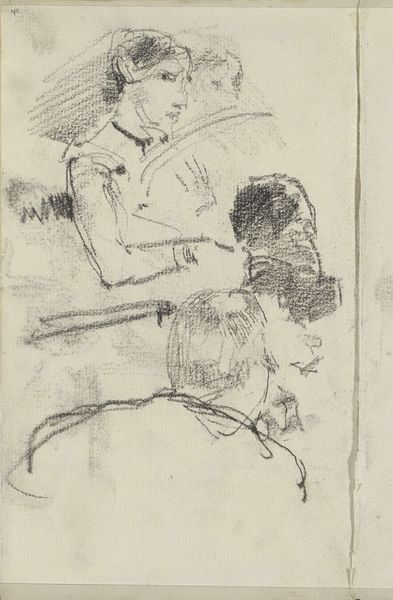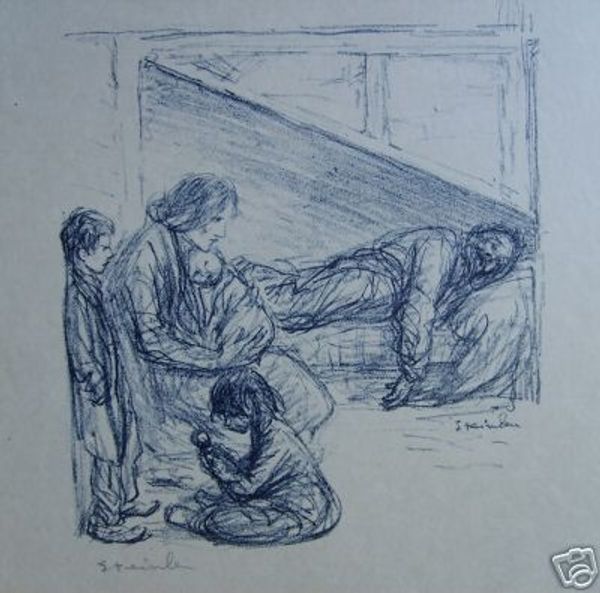
drawing, pencil, graphite
#
portrait
#
drawing
#
amateur sketch
#
light pencil work
#
thin stroke sketch
#
shading to add clarity
#
pencil sketch
#
incomplete sketchy
#
figuration
#
pencil
#
limited contrast and shading
#
rough sketch
#
graphite
#
tonal art
#
realism
#
initial sketch
Copyright: Bela Czobel,Fair Use
Bela Czobel's 1930 pencil drawing presents two women absorbed in sewing, their bent heads and focused hands evoking a timeless scene of domestic labor. The act of sewing itself carries symbolic weight. It represents creation, mending, and the cyclical nature of life. Think of Philomela in Ovid’s Metamorphoses, weaving her story into tapestry as a means of voiceless expression. This motif transcends time, appearing in various forms across cultures, from the Greek myth of Penelope weaving a shroud for Laertes, to countless depictions of women engaged in needlework throughout art history. The bowed head and hands engaged in meticulous labor evoke a sense of quiet introspection and perhaps even subjugation. These postures recur in religious art, conveying humility or devotion. This connection highlights how ingrained these symbols are in our collective memory, resonating on a deeper level. As such, the simple act of sewing becomes a potent symbol of human ingenuity and perseverance, connecting us to a shared cultural past that continues to shape our understanding of ourselves.
Comments
No comments
Be the first to comment and join the conversation on the ultimate creative platform.
